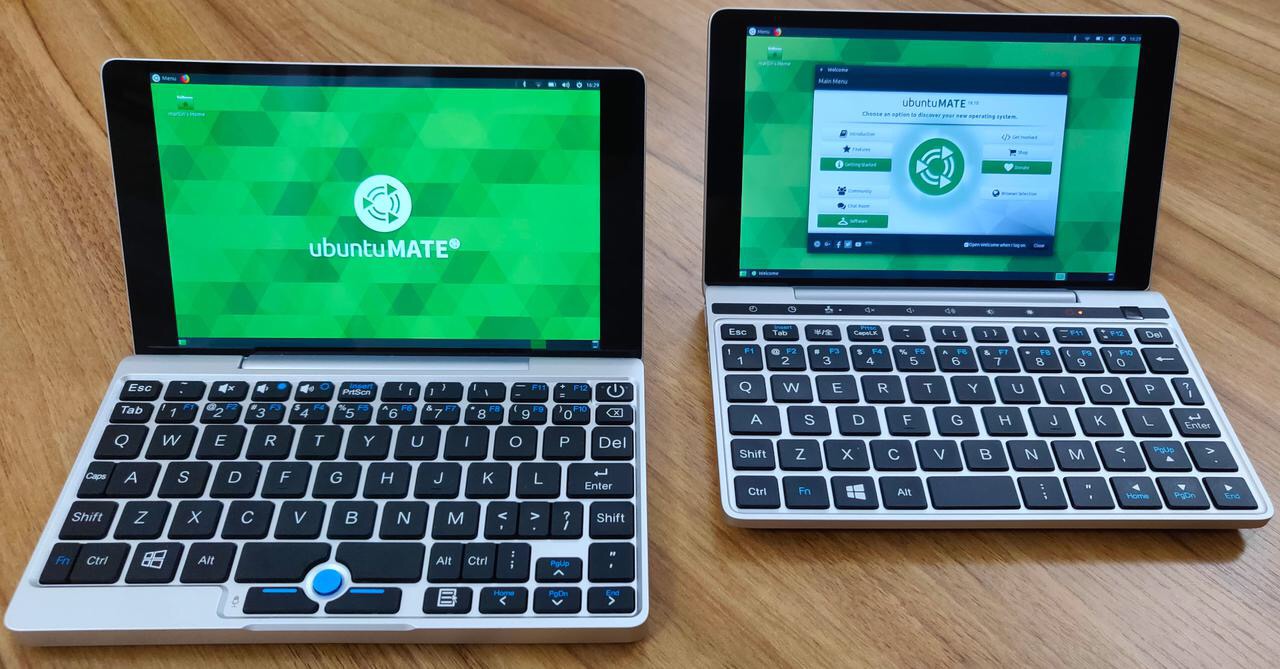
GPD Pocket devices get special Ubuntu MATE 18.10 Linux image
Just yesterday, Ubuntu 18.10 was released. "Cosmic Cuttlefish," as the operating system is called, is available in several flavors featuring various desktop environments other than the stock GNOME -- Xfce (Xbuntu), KDE (Kubuntu), and more.
One such variant, Ubuntu MATE 18.10, is popular thanks to its low system requirements -- it works very well on meager hardware. To highlight just how adaptable the operating system is, a special image has been released for both the GPD Pocket and GPD Pocket 2. If you aren’t familiar with these mini-laptops, please know they are essentially what used to be called a "Palmtop."

Snaps for Linux are a massive success
One of the big knocks against Linux-based operating systems is lack of software. The truth is, there are countless excellent programs for both productivity and fun. One fair criticism, however, is fragmentation between distributions. For end users, it can be difficult installing an app that isn't designed for their distro. And yeah, that has been a pain point for years.
Thankfully, Canonical -- maker of Ubuntu -- aimed to alleviate that problem with Snaps. These containerized packages can be installed on pretty much any Linux distribution, making things easier for both users and developers. But has the organization's standard been a success? Apparently, very much so. As a way to celebrate yesterday's release of Cosmic Cuttlefish, Canonical shares the following infographic.

Ubuntu Linux 18.10 Cosmic Cuttlefish is finally available for download!
There has never been a better time to be a Linux enthusiast. There are so many great distributions from which to choose, including elementary OS 5 Juno, Linux Mint 19, and Bodhi 5.0.0. What do those aforementioned operating systems have in common? They are based on Ubuntu. To take things a step further, Canonical's operating system is based on Debian, but I digress.
But yeah, Ubuntu is wildly popular -- with both end users and other Linux distro maintainers. When a new version of the operating system is released, the world goes wild. Well, it's time to get excited, yall! Today -- after a short Beta period -- Ubuntu Linux 18.10 Cosmic Cuttlefish is finally available for download!
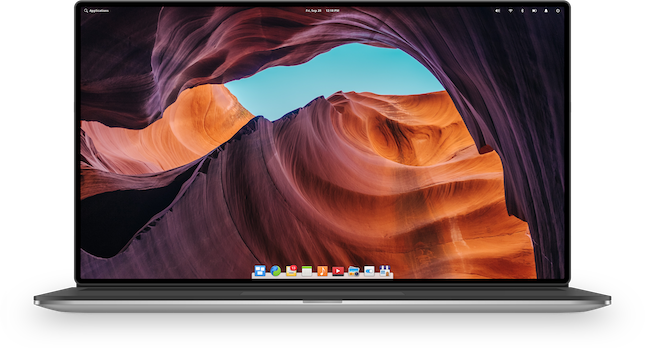
elementary OS 5 'Juno' Linux distribution is ready to replace Windows 10
Using a computer should be fun and inspiring. Windows used to be enjoyable for many consumers, but Microsoft's latest operating system just isn't. Not only is Windows 10 very buggy -- deleting user files is as bad as it gets, folks -- but the spyware nature with the excessive telemetry can make the user feel like a visitor on their own computer. Hey, you spent good money on your PC -- you should feel at home on it, right?
Enter Linux. God bless the open source kernel. Thanks to Linux-based operating systems and excellent free open source software, it is possible to return to the better days of computing. One operating system in particular has put a ton of focus on the user experience -- elementary OS. This is an oversimplification, but the interface feels like a blend between GNOME and macOS. It looks good, is intuitive, and is an absolute pleasure to use. October may be the month of Halloween, but it feels more like Christmas, because the latest version of the operating system -- Juno -- is ready to be unwrapped like a gift.

UBports Foundation releases Linux-based Ubuntu Touch OTA-5
Ubuntu Touch never lit the world on fire as many Linux fans had hoped, but to be honest, most mainstream consumers didn’t even know it existed. So when Canonical canceled it, not many people cared. Luckily, since the project was open source, it was easy for another organization — in this case, UBports — to grab the torch and run with it.
Back in August, UBports surprised many with the Ubuntu Touch OTA-4 release, which breathed new life into tablets and smartphones that ran the Linux distro. Now, OTA-5 is here to take it up yet another notch. The new version gets a new web browser called Morph which is based on QtWebEngine. Best of all, OTA-5 gets improved adaptive scaling for a better experience regardless of screen size. From a superficial standpoint, there are new wallpapers based on community submitted artwork.
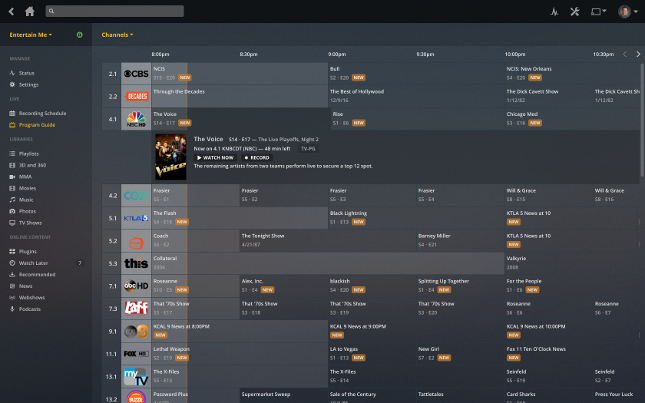
Plex for Linux now available as a Snap
Microsoft is having a terrible time lately. Sometimes it feels like the company wants to sabotage itself. The most recent debacle is its flagship product -- Windows 10 -- deleting user files. Even worse, the company ignored user feedback that it was happening! Quite frankly, after such a scary thing, I am not sure how people can trust Microsoft's operating system with important data.
Thankfully, you do not have to use Windows. These days, it is easier than ever to use Linux instead. There are plenty of great apps available for operating systems like Ubuntu, Fedora, and more. Canonical's containerized Snap packaging makes it even simpler to both install Linux apps and keep them updated. Today, a very popular app, Plex Media Server, gets the Snap treatment. In other words, you can install the media server program without any headaches -- right from the Snap store!

Cuddle up with Ubuntu Linux 18.10 Cosmic Cuttlefish Beta now!
Just yesterday, we shared with you the official Ubuntu Linux 18.10 Cosmic Cuttlefish wallpaper. And yeah, while it looks cool, it's not as exciting as, say, a Beta release of the upcoming operating system. Today, that is exactly what we get.
If you like to run pre-release Linux-based operating systems for fun -- which I do -- you can download the ISO immediately. With Ubuntu, these late-stage Beta releases are usually very stable. After all, the final version will drop next month. So while you should install it at your own risk, I would say you are probably safe with it.

Canonical unveils the official Ubuntu Linux 18.10 'Cosmic Cuttlefish' wallpaper
Twice a year, a new version of Ubuntu is released -- in April and October. We are currently in September, meaning a new release is just around the corner. As per normal naming guidelines (YY.MM), it will be version 18.10. In addition to a number, Canonical assigns a fun name too -- based on an animal, alphabetically, preceded by a word that starts with the same letter. In this case, Ubuntu 18.04 is using the letter "C." What is it called? Cosmic Cuttlefish.
The name and version number is only part of the tradition, however, In addition, Canonical releases a special wallpaper based on the name. The animal is often a line drawing with the background using the classic Ubuntu magenta/orange gradient color. Today, on Twitter, Canonical unveils the official Cosmic Cuttlefish wallpaper.
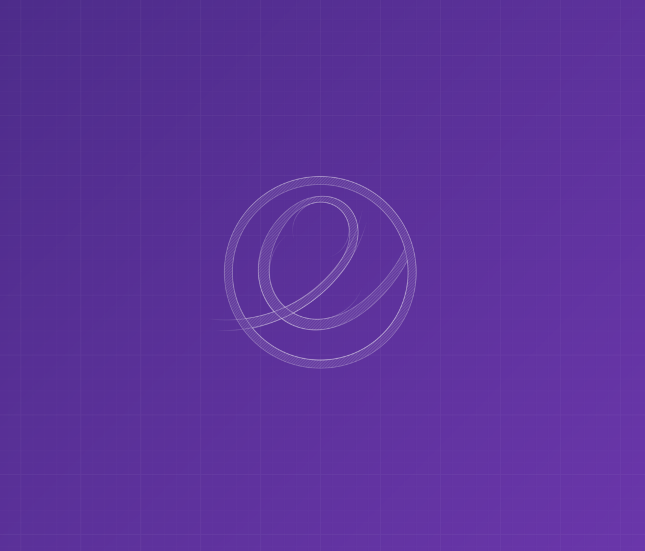
Ubuntu-based elementary OS 5.0 'Juno' Beta 2 Linux distro now available
Why don’t more desktop computer users use Linux? Well, software compatibility aside, there is fear of change and the unknown. For a user to switch from Windows, it must be a fairly simple affair. For years, just installing a Linux-based operating system was a daunting task. These days, it can be faster and easier than installing Windows 10 -- depending on distro, of course.
For beginners, once installed, their chosen Linux distro should be easy to use with an intuitive desktop environment. I'm a big fan of GNOME, but understandably, not all folks like it -- especially Linux novices. One particular Linux-based desktop operating system has been focusing on accessibility to all -- elementary OS. This distro is polished and aims to be easy to use for both experts and beginners alike. Today, version 5.0 of the OS -- called "Juno" -- reaches Beta 2. Impressively, there have been over 200 fixes implemented since Beta 1.

Canonical reveals Ubuntu Linux 14.04 LTS 'Trusty Tahr' Extended Security Maintenance (ESM) plans
When it comes to upgrading an operating system, home users have plenty of flexibility. Whether running Windows, Mac, or a Linux-based OS, moving to the latest and greatest should be a fairly uneventful affair. For businesses, however, bleeding edge is hardly ideal. After all, companies use their computers to make money -- there is no room for downtime due to upgrade issues. In other words, if it isn't broken, don't fix it. This is why many in the corporate world still run Windows 7.
Of course, staying on an older operating system can be problematic as well. As long as the OS is supported, you are golden. To run an operating system that no longer gets security updates is pure madness, though. Luckily, if you need to run an unsupported operating system, some maintainers, such as Canonical and Microsoft, will still support you -- if you pay up. For example, next year, Ubuntu 14.04 will reach end of life, so today, Canonical announces its Extended Security Maintenance (ESM) plans.
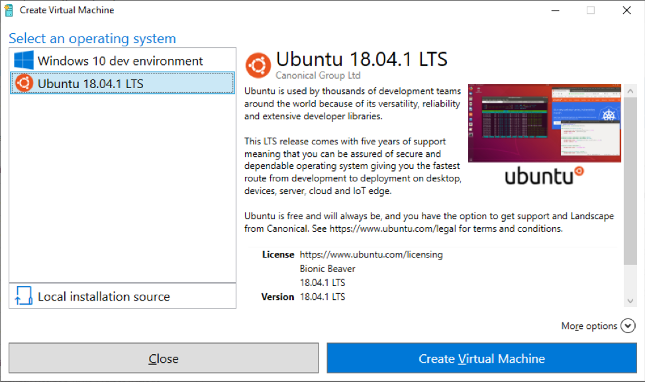
Microsoft and Canonical release Ubuntu Linux virtual machine image for Hyper-V Quick Create
Linux may be the future of computing, but Windows is the present -- on the desktop, at least. For now, both business and home users are wise to stick with Microsoft's operating system. With that said, tech savvy users might be better served by, say, Linux Mint or Ubuntu. While Windows 10 is riddled with privacy and user interface issues, it is still the least stressful way to use your computer -- you are less likely to have hardware or software compatibility issues.
If you are interested in Linux but need to use Windows 10, there are many ways to also run operating systems based on the open source kernel, such as dual-booting or running a virtual machine. Not to mention, with Windows Subsystem for Linux, you can even download and install distros directly from the Microsoft Store! Today, the Windows-maker and Canonical announce a new way to run Ubuntu on Windows 10 -- a special "Hyper-V Quick Create" VM image
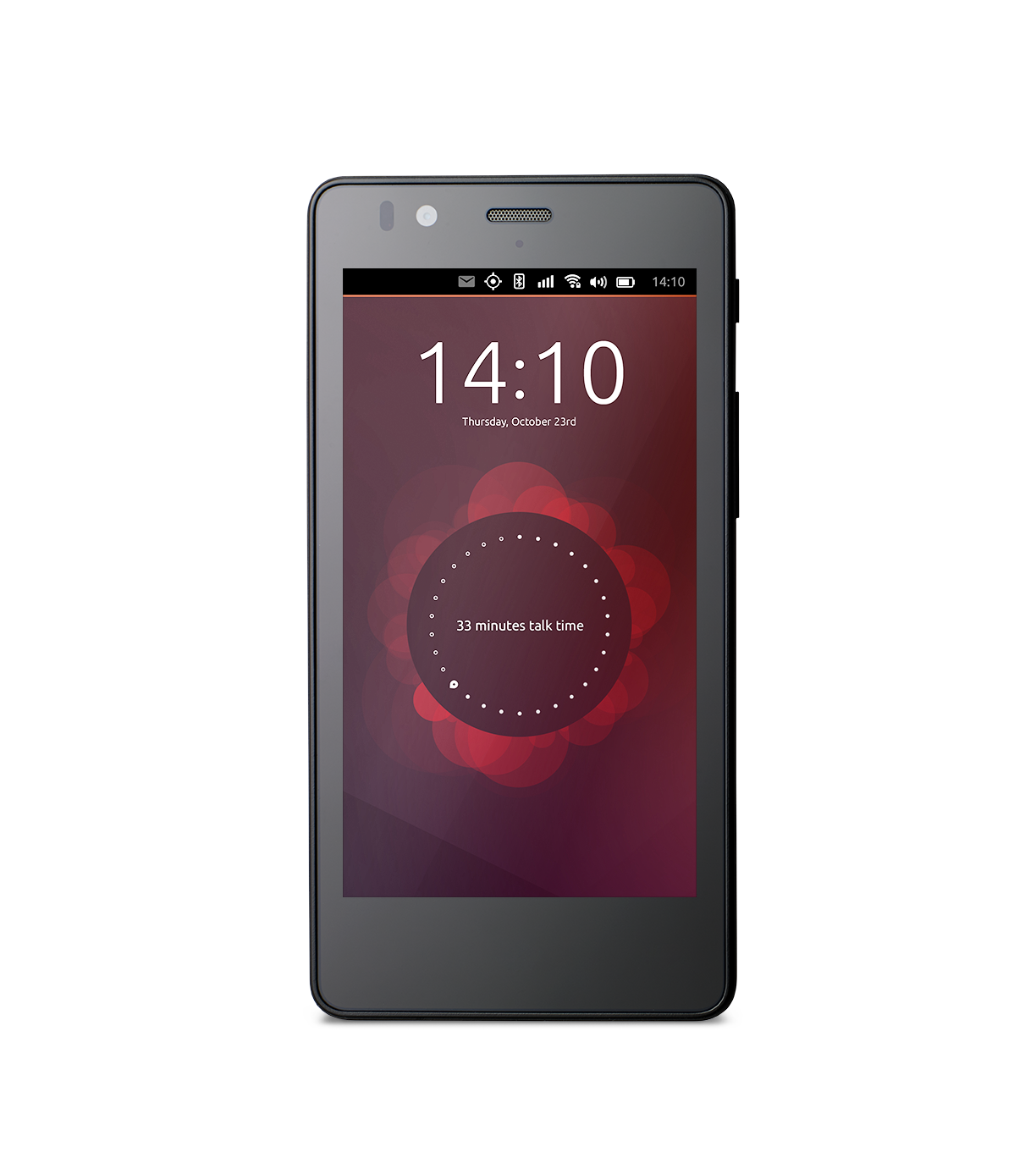
UBports Foundation releases Linux-based Ubuntu Touch OTA-4
Canonical once had an ambitious vision of making Ubuntu a dynamic operating system that would scale to desktop computers, tablets, and smartphones. Unfortunately, this goal was ultimately a failure -- the Ubuntu Touch plan was abandoned. Later, the much-maligned Unity environment was killed off. Why did it all fail? Quite simply, as Microsoft learned with Windows Phone, it is pretty much impossible to compete with Google and Apple in mobile. Android and iOS are just too mature and too good. Ubuntu Touch had no real chance due to a lack of apps and device support.
For those that still own devices compatible with Ubuntu Touch, all is not lost. You see, the UBports Foundation has picked up development. Today, the foundation releases version OTA-4, which is based on Ubuntu 16.04 LTS. It is chock-full of improvements, but unfortunately, despite the "OTA" name, you apparently cannot upgrade over the air.
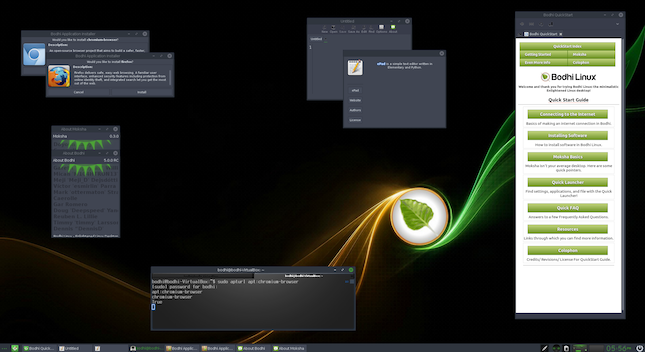
Bodhi Linux 5.0.0 now available with Ubuntu 18.04 base
One of the best things about there being so many Linux distributions, is it can be fun to try them all. Believe it or not, "distro-hopping" is a legit hobby, where the user enjoys installing and testing various Linux-based operating systems and desktop environments. While Fedora is my reliable go-to distro, I am quite happy to try alternatives too. Hell, truth be told, I have more fun trying distributions than playing video games these days, but I digress.
A unique distribution I recommend trying is the Ubuntu-based Bodhi Linux. The operating system is lightweight, meaning it should run decently on fairly meager hardware. It uses a desktop environment called "Moksha" which is very straightforward. The Enlightenment 17 fork is a no-nonsense DE that both beginners and power users will appreciate. Today, version 5.0.0 finally becomes available. This follows a July release candidate.

Happy 25th Birthday, Debian Linux!
Debian is one of the most important open source projects ever. The Debian Linux operating system is extremely popular in its own right, but also, it is used as the base for countless other distributions. Ubuntu, for instance -- one of the most-used distros -- is Debian-based. Even Linux Mint, which is based on Ubuntu, also has a Debian edition. Not to mention, Raspbian -- the official Raspberry Pi OS -- which is based on Debian too.
Today, Debian is celebrating a very important milestone -- a 25th birthday! Yes, it is seriously that old -- its development was announced on August 16, 1993. Hell, many of its current users weren't even born then!

Forget Surface Go -- System76 offers huge back-to-school savings on Linux laptops
Next month, students across America will be returning to school. Whether K-12 or college, technology has become increasingly important in the classroom. It is for this reason that a laptop can be an essential tool for a learner.
Microsoft recently launched the Surface Go, and while the underpowered tablet looks like a decent enough option for students on a budget, let's be honest -- it isn't a true laptop. Its floppy keyboard (which is sold separately) means it is not sturdy on a lap. Not to mention, it is more of a secondary computer -- not a main PC. If you would rather equip the student in your life with a true computer, why not turn to Linux? After all, open source is the future of computing. System76 has a new back-to-school sale that makes buying a computer running Ubuntu or Pop!_OS much more affordable.
